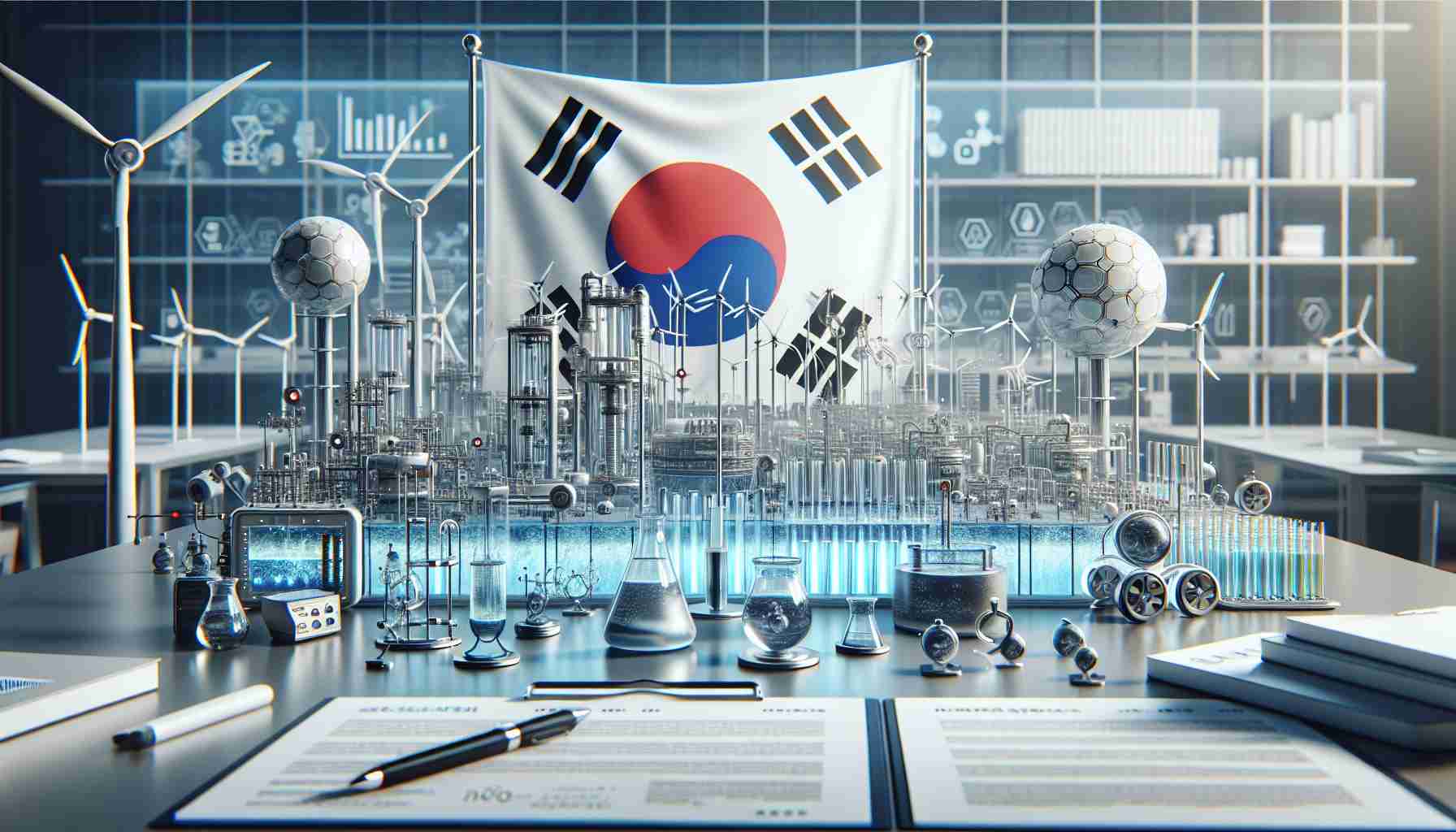Innovative Standards Proposed for a Greener Future
In a groundbreaking development, Korea has set the stage for international advancements in hydrogen technology. During the ISO/TC197 General Assembly convened in Seoul, two pioneering technologies were put forth as potential global standards, garnering approval from participating experts.
The first of these is a performance evaluation test method aimed at enhancing water electrolysis technology. This innovative approach breaks down the technology into smaller components, allowing for more precise assessments of efficiency. The collaboration between leading institutions, including the Korea Hydrogen Industry Association and German researchers, underscores a commitment to improving hydrogen production reliability.
Another significant proposal is the high-pressure hose test method tailored for hydrogen tube trailers. This technology is designed to optimize transportation efficiency by facilitating rapid hydrogen intake. By ensuring that high-pressure hoses meet stringent international safety standards, stakeholders hope to streamline the delivery of compressed hydrogen.
As Korea aims to lead the global hydrogen sector, which is projected to reach an astonishing $12 trillion by 2050, the Ministry of Trade, Industry, and Energy plans to promote these new technologies as national standards. By prioritizing standardization, Korea not only strengthens its technological prowess but also fosters global collaboration and innovation in the clean energy landscape. The establishment of these international benchmarks promises to enhance safety and interoperability, driving forward the hydrogen economy and contributing to a sustainable future.
Revolutionizing Hydrogen Technology: Korea’s Path to Sustainable Energy Standards
Innovative Standards Proposed for a Greener Future
In a significant stride towards innovative energy solutions, Korea is poised to revolutionize the hydrogen technology landscape globally. The recent ISO/TC197 General Assembly, held in Seoul, marked the unveiling of two groundbreaking technologies aimed at establishing international standards, receiving broad support from industry experts.
Key Innovations in Hydrogen Production
1. Performance Evaluation Test Method for Water Electrolysis
The first proposed standard introduces a performance evaluation test method specifically designed for water electrolysis technology. This approach meticulously deconstructs the electrolysis process into smaller, quantifiable components, thereby enhancing the accuracy of efficiency assessments. Such detailed evaluations are crucial for advancing the reliability of hydrogen production systems. The collaboration between the Korea Hydrogen Industry Association and a consortium of German researchers highlights a promising international partnership geared towards optimizing hydrogen generation.
2. High-Pressure Hose Test Method for Hydrogen Transportation
The second pioneering proposal focuses on developing a high-pressure hose test method, particularly for use in hydrogen tube trailers. This method aims to significantly improve transportation efficiency by enabling rapid hydrogen intake while ensuring that all high-pressure hoses comply with stringent international safety standards. This advancement is essential as it not only promotes the safe delivery of compressed hydrogen but also bolsters the logistics involved in hydrogen supply chains.
Economic Impact and Future Projections
As Korea aspires to establish itself as a frontrunner in the global hydrogen sector—predicted to balloon to $12 trillion by 2050—the Ministry of Trade, Industry, and Energy is committed to adopting these innovative technologies as national standards. This proactive approach to standardization is expected to solidify Korea’s technological leadership while fostering a collaborative global environment for clean energy advancements.
Benefits of Standardization
– Improved Safety: Establishing rigorous safety standards ensures that the processes and equipment used in hydrogen production and transport meet high compliance thresholds, reducing risks associated with hydrogen handling.
– Enhanced Interoperability: Standardized practices will facilitate the seamless integration of hydrogen technologies across different systems, making it easier for industries to adopt and implement these solutions.
– Global Collaboration: By leading the way in setting these international benchmarks, Korea is not only enhancing its reputation as a leader in hydrogen technology but is also inviting global partnerships aimed at accelerating innovation in sustainable energy.
Conclusion
The introduction of these standards emphasizes Korea’s commitment to advancing the hydrogen economy while addressing global environmental challenges. As the sector continues to evolve, the implications of these technologies will resonate far beyond Korea’s borders, potentially transforming the global landscape of clean energy.
For more information on this evolving topic, check out Korea Energy.
